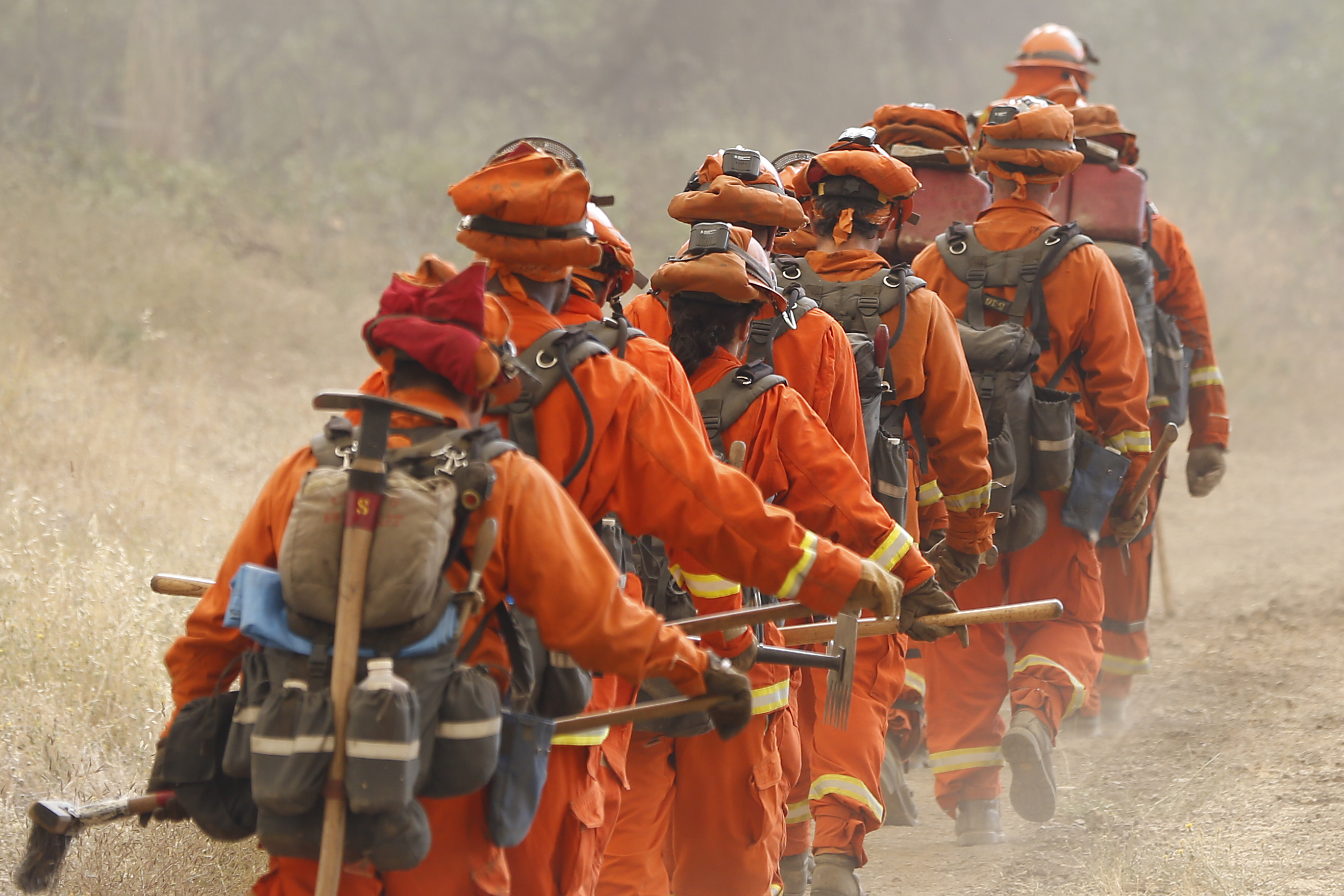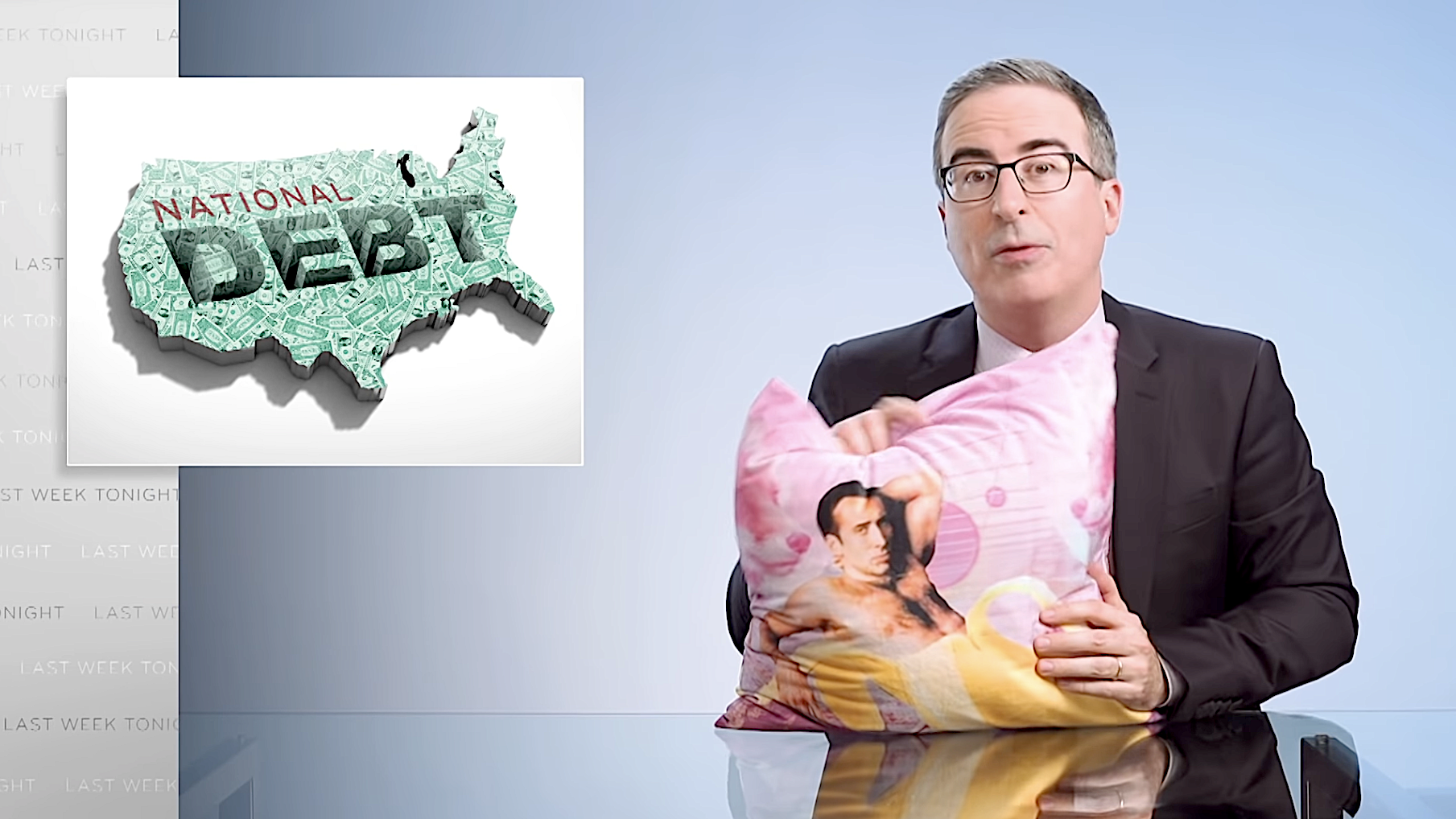Corporate America has a secret slave labor force
On the sickening injustice of forcing prisoners to work for peanuts


A free daily email with the biggest news stories of the day – and the best features from TheWeek.com
You are now subscribed
Your newsletter sign-up was successful
What if I told you there was an army of workers in this country, probably over 2 million strong, that is forced to work for next to nothing? If they're lucky, these workers get 40 cents an hour. They get no Social Security benefits, no workers' compensation insurance, and certainly no overtime. They often are threatened with punishment if they refuse these terms.
You'd probably say that this system sounds akin to slavery. And you wouldn't be wrong.
But this is also the reality of America's federal, state, and local prison system.
The Week
Escape your echo chamber. Get the facts behind the news, plus analysis from multiple perspectives.

Sign up for The Week's Free Newsletters
From our morning news briefing to a weekly Good News Newsletter, get the best of The Week delivered directly to your inbox.
From our morning news briefing to a weekly Good News Newsletter, get the best of The Week delivered directly to your inbox.
When Congress put inmate work programs in place in place in 1979, the goal was giving people in prison marketable skills to help them reintegrate into society. But as state governments also climbed on board with their own programs, and the private prison industry boomed, inmate work programs have turned into a massive supply of incredibly cheap and involuntary labor at one time or another in the last few years for everyone from Walmart to McDonald's to Victoria's Secret to the U.S. military. Even Whole Foods' cheese was produced by prison labor, until public outcry shut it down.
There are more than 2.2 million people in the U.S. federal, state, and local prison systems. Most of them are required to work in some capacity, and can face consequences including solitary confinement if they don't. American jurisprudence has generally decided that these prisoners do not count as "employees" under such statutes as the Fair Labor Standards Act and the National Labor Relations Act, so they get no protection from those laws. Pay varies, but 12 to 40 cents an hour appears to be the norm in most federal prisons. In some places, the incarcerated workers aren't paid anything.
Roughly 6 percent of state prisoners and 16 percent of federal prisoners are held and put to work by private prison companies. But many state governments have discovered that they can put their inmates to work themselves providing various goods and services, and use the profits to offset their budgets.
In 1963, for instance, the Lone Star State created Texas Correctional Industries (TCI), which is run by an appointed board. On its website, TCI boasts of producing "garments and cloth products, janitorial supplies, laundry supplies, name plates and easels, park equipment, stainless steel security fixtures and food service equipment, school bus renovation services, tire repairs and retreading," and much, much more. Its sales were almost $90 million in 2014. The Texas prisoners themselves say — and reporting by The Intercept backs them up — that they aren't paid a dime for any of this.
A free daily email with the biggest news stories of the day – and the best features from TheWeek.com
There are also "joint venture programs," in which private businesses partner with state governments to employ inmates. Arizona Correctional Industries, for example, uses inmate labor to staff call centers and run print shops, among other things. They claim they provided 2 million labor hours in 2015 alone.
All told, at least 37 states have legalized contracting out prison labor to private companies in some form. There are far too many corporations to list, but IBM, Boeing, Microsoft, AT&T, Macy's, and plenty of others all participated in some form in the past.
This arrangement is highly attractive to both governments and private businesses. And it's not crazy to argue that the incentive to expand the supply of super-cheap and involuntary labor is a big driver of America's increase in convictions and sentencing length for minor offenses.
Of course, there is resistance to squeezing free labor out of prisoners. And it's coming from the inmates themselves.
Inmates at seven prisons across Texas went on strike in April to combat dismal living conditions and the exploitative terms of their work. Their demands included allowing their work time to count towards parole, repeal of the $100 copay they have to fork over for medical treatment, better living conditions, and a new oversight committee to do surprise inspections of Texas prisons. There have been other strikes in recent years in Michigan, Wisconsin, Georgia, California, and Alabama. The Incarcerated Workers Organizing Committee aims to unionize the American prison population. And there are plans for another round of coordinated strikes coming in September, in Ohio, Mississippi, Virginia, and Alabama.
There's actually a long, cyclical history of American prisons being used as labor pools, particularly as a kind of de facto replacement for slavery following formal abolition in 1865. As plenty of reports have noted, it's hard to miss the similarities between the work many current-day prisoners are subjected to and the planation slavery of the Old South.
The 13th Amendment, which banned slavery and involuntary servitude, included the caveat "except as a punishment for crime whereof the party shall have been duly convicted." But the inmates who protested in Texas made what should be the obvious point that neither they nor anyone else ever gets sentenced to servitude. Their imprisonment is itself their punishment and the manner by which they pay their debt to society.
"[The Texas Department of Criminal Justice] has taken upon itself the authority of punishing prisoners with slavery on top of their sentences, violating therefore, their Human and Constitutional Rights" the Texas inmates wrote in a letter explaining their strike.
That logic seems hard to contest.
Editor's note: This article originally mischaracterized which companies utilized prison labor, and when. It has since been corrected. We regret the error.
Jeff Spross was the economics and business correspondent at TheWeek.com. He was previously a reporter at ThinkProgress.
-
 Political cartoons for February 16
Political cartoons for February 16Cartoons Monday’s political cartoons include President's Day, a valentine from the Epstein files, and more
-
 Regent Hong Kong: a tranquil haven with a prime waterfront spot
Regent Hong Kong: a tranquil haven with a prime waterfront spotThe Week Recommends The trendy hotel recently underwent an extensive two-year revamp
-
 The problem with diagnosing profound autism
The problem with diagnosing profound autismThe Explainer Experts are reconsidering the idea of autism as a spectrum, which could impact diagnoses and policy making for the condition
-
 Late night hosts joke about Trump's forced exodus from Facebook to blog
Late night hosts joke about Trump's forced exodus from Facebook to blogSpeed Read
-
 Fox News admits Biden doesn't actually want to cancel meat. Late night hosts pounce anyway.
Fox News admits Biden doesn't actually want to cancel meat. Late night hosts pounce anyway.Speed Read
-
 Manhattan D.A. will stop prosecuting sex workers, not their clients, pimps, or sex traffickers
Manhattan D.A. will stop prosecuting sex workers, not their clients, pimps, or sex traffickersSpeed Read
-
 John Oliver explains personal bankruptcy, how credit card lobbyists and lawyers make it much worse
John Oliver explains personal bankruptcy, how credit card lobbyists and lawyers make it much worseSpeed Read
-
 John Oliver explores problems with U.S. nursing homes and long-term care, suggests you pay attention
John Oliver explores problems with U.S. nursing homes and long-term care, suggests you pay attentionSpeed Read
-
 John Oliver tries to explain whether you should worry about the enormous U.S. national debt
John Oliver tries to explain whether you should worry about the enormous U.S. national debtSpeed Read
-
 Late night hosts laugh at the giant ship blocking the Suez Canal, chide Fox News for fake Kamala Harris scandal
Late night hosts laugh at the giant ship blocking the Suez Canal, chide Fox News for fake Kamala Harris scandalSpeed Read
-
 Utah governor signs bill requiring porn blocking on all new smartphones and tablets
Utah governor signs bill requiring porn blocking on all new smartphones and tabletsSpeed Read
